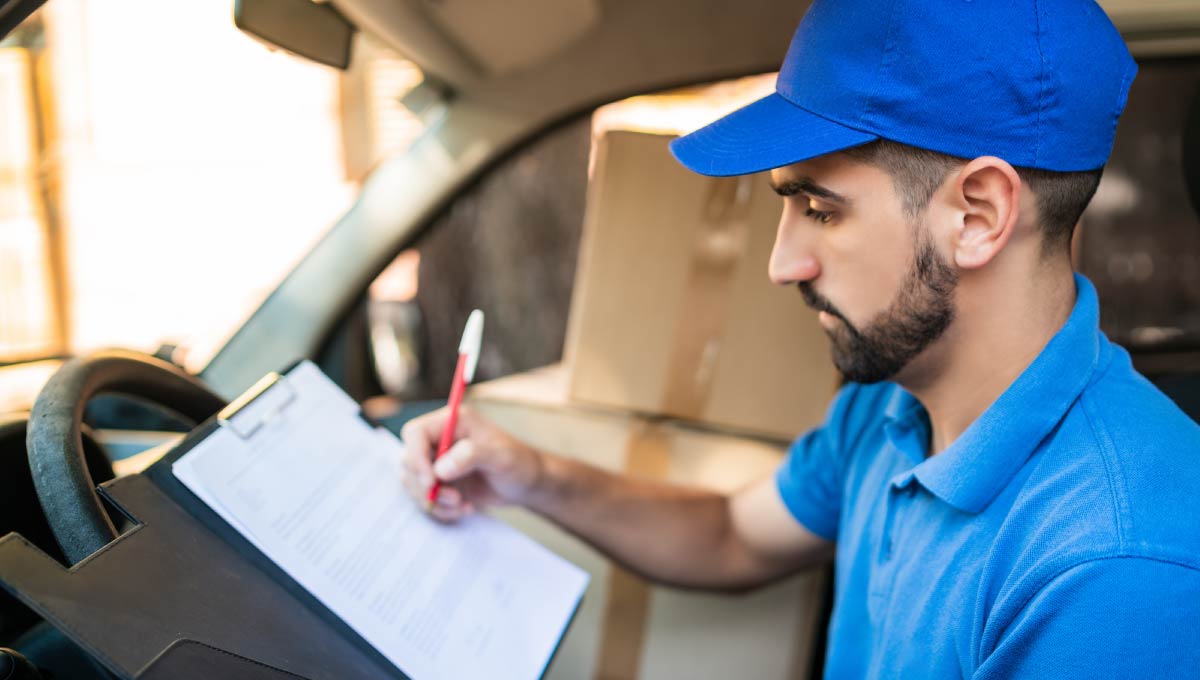International Shipping:
A Complete Guide For Online Retailers

International shipping can be a growth rocket ship for today’s online retailers. Businesses that master it open themselves up to global eCommerce markets (approximately 2 billion digital buyers) and generate a distinct advantage over the competition.
Unfortunately, getting it right is challenging. Running an effective international parcel service is a tricky business involving countless moving parts.
For this reason, we developed this guide. It explains why reliable international parcel delivery is critical for eCommerce international shipping, explores the impact of various duties and taxes and asks how to make the process cheaper.

Why is it important for an eCommerce business to get international shipping right?
International markets can be lucrative and beneficial for your business. Expansion into the global markets can:
- Increase your market share into the fastest growing international eCommerce user bases, such as India and China.
- Diversify your revenue streams, minimising over-reliance on a single domestic market.
- Establish brand awareness and trust. A global presence conveys a level of reliability and reassurance to your customers, both domestic and international.
- Enables your business to be at the forefront of trends and innovations in your sector. By having international customers you will be aware of changes emerging overseas before they hit domestic shores.
However, these wins are all dependent on customers trusting you to provide on-time deliveries. If you can’t, you risk losing customers to domestic players offering viable substitutes.
What is IOSS (Import One Stop Shop), DTP (Duty and Taxes Paid), Delivered Duty Paid (DDP) and Delivered at Place (DAP)?
Unfortunately, taxes and duties can sometimes seem a complicated and unmanageable barrier to entry for eCommerce businesses. The following section lists various arrangements you might encounter when shipping internationally:
- Import One Stop Shop (IOSS): IOSS is an EU program to simplify VAT collection on low-value shipments for businesses operating outside the trading block (such as eCommerce businesses in the UK). The program lets you register for IOSS in an EU country and collect VAT at the point of sale, reducing delay risks at customs. However, this arrangement is limited to B2C orders not exceeding €150.
- Duty and taxes paid (DTP): DTP (Duties & Taxes Paid) means that any Duties & Taxes revert to the sender. Typically, they’re paid for by the carrier at Customs and the sender will be invoiced by the carrier for payment. Not all carriers offer a DTP, or may limit the countries they offer it for, so the sender will likely need to use multiple carriers and select the best service for each parcel on a case by case basis. However, this is a good option if you send goods valued above the IOSS threshold or haven’t yet got yourself set up with IOSS, but still want to deliver a friction-free customer experience.
- Delivered Duty Paid (DDP): DDP also means Duties & Taxes are paid by the sender and not the receiver. The key difference from DTP is that it requires the sender to be the Importer of Record, which is the person officially responsible for making sure delivery is compliant with all legal regulations in the destination country. Often the Importer of Record needs to be tax-registered in the destination country. Some countries are especially strict in enforcing the requirement for a tax-registered Importer of Record, which can result in DDP parcels not clearing at Customs. Various carriers have sought to overcome this by creating services where the receiver can be the Importer of Record, however this is not standard so the most appropriate carrier needs to be carefully selected.
- Delivered At Place (DAP) (Formerly DDU – Delivered Duty Unpaid): By contrast, DDU requires the receiver to foot the bill for the goods. Customers must pay taxes and charges to customs officials. This option is less expensive for your eCommerce business, but it can cause delays and extra costs for your customers so they should be made aware of this policy in advance.
Navigating what arrangement is most suitable for your business is dependent on your sector and customer base expectations. GFS International eCommerce can help assess what arrangement would best suit your business and their proprietary shipping management software can automate the entire process for you.


What impact do Duties and Taxes have when shipping internationally?
The impact that Brexit has had on eCommerce businesses shipping to the EU has made quite a few headlines in the last four years. Suddenly, firms have had to deal with new processes and charges when shipping to their largest export market.
However, duties, taxes and customs charges were an important consideration for many businesses even before the UK left the single market. Shipping to other major markets, like the United States and East Asia has always incurred additional duties, surcharges and taxes.
The main consequences of these duties, surcharges and taxes are:
Higher costs
eCommerce businesses, consumers or both must pay more to move products internationally. As we know, the burden of this falls on the eCommerce company under DTP and the consumer under DDU (although in practice, it is always the purchasing party who ultimately pays through higher purchasing costs).
Sub-optimal customer experience
Customers won’t always get products as rapidly. People ordering goods internationally may need to wait for customs to process shipments or apply duties and taxes.
Furthermore, with a poorly executed international shipping process, consumers may experience transparency issues. Local carriers might apply fuel surcharges, fines, or remote area surcharges, leading to unwanted surprises, costs and delays.
How can I get the cheapest international shipping for my eCommerce business?
The easiest way to access cheap international parcel delivery is to use a multi-carrier shipping firm like GFS.
By leveraging the competitive nature of the carrier market, they can optimise each parcel’s route with intelligent software, enabling the best value carrier and service to be selected according to the parcel’s size, weight, value, delivery timescale and destination.
If you are limited to a single carrier you are tied to their delivery network and they have no motivation to offer you the best rates. In addition, they may not have the existing network or experience to manage the local customs and duty requirements, and this can result in further unforeseen costs.


How can I manage international returns?
International returns can be difficult and costly to manage. eCommerce businesses can minimise the impact on resources by:
- Working with carriers and carrier partners who can facilitate returns.
- Providing customers with an easy option to make return requests electronically.
- Ensuring full transparency about your returns policy and any costs involved.
- Offering several return options (such as drop-off points for collection in international markets).
- Managing multiple communication channels, such as web chat and phone.










